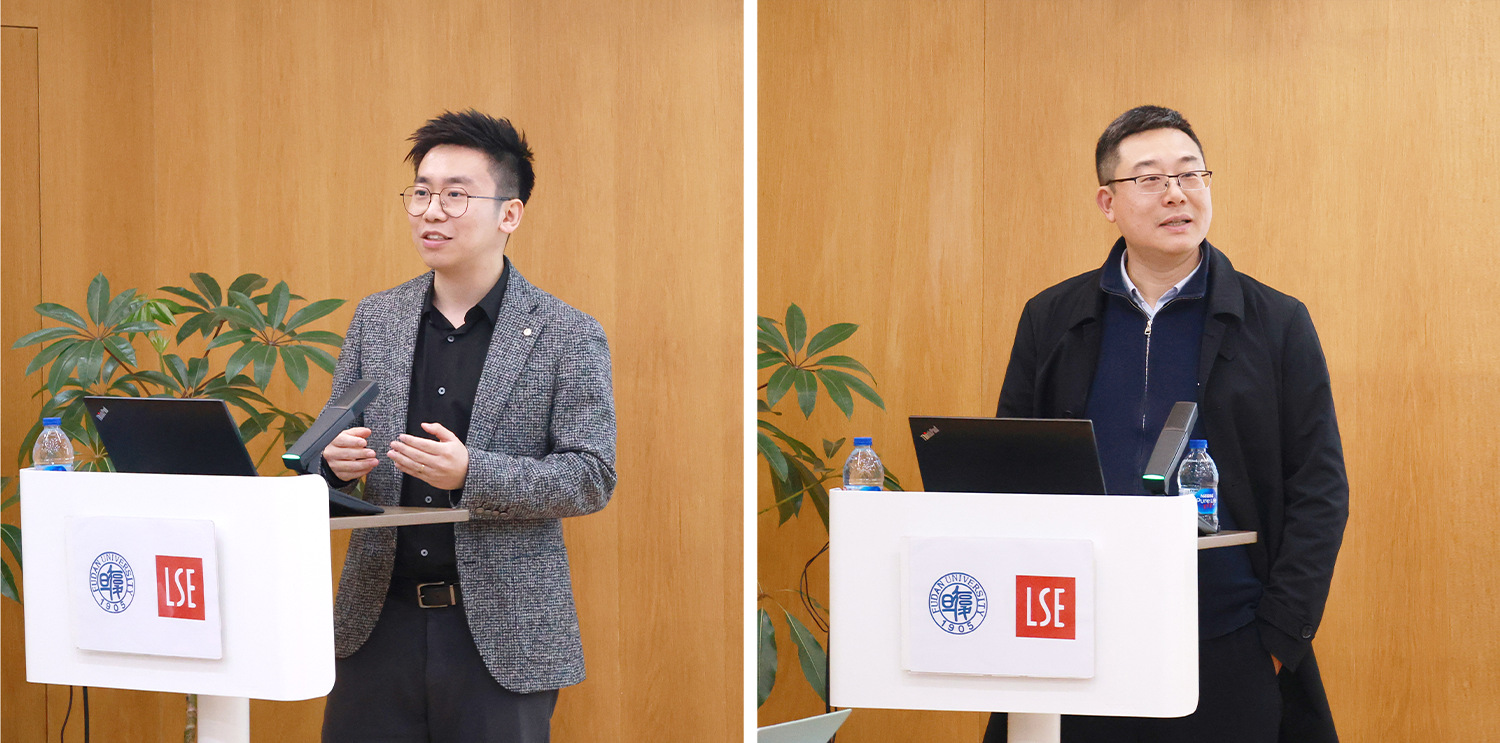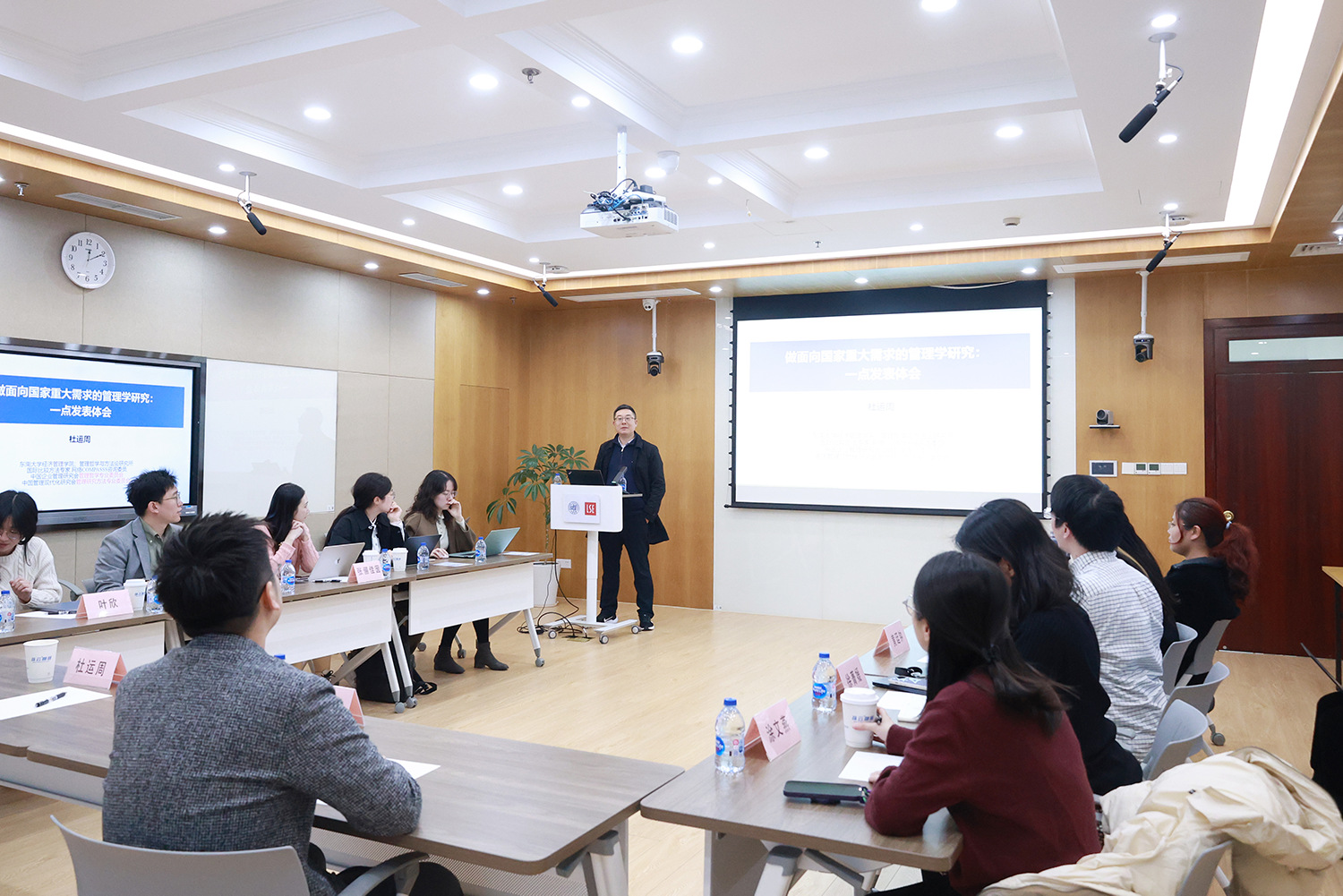
On March 28, 2025, Professor Yunzhou Du from the School of Economics and Management at Southeast University visited the Institute for Global Public Policy (IGPP) at Fudan University. He participated in a thematic seminar with young faculties and student at IGPP, delivering a talk titled “Conducting Management Research Addressing Major National Needs.” The seminar was moderated by Associate Professor Ziteng Fan.
Professor Du is a Distinguished Professor at Southeast University and currently serves as Chair of the Department of Business Administration. His research interests include management philosophy, Qualitative Comparative Analysis (QCA) methods, and institutional logic theory. He concurrently serves as the Chair of the Management Philosophy Committee of the Chinese Institute of Business Administration and is recognized for founding China’s first QCA Workshop. Professor Du has led one key project, three general projects, and one youth project funded by the National Natural Science Foundation of China (NSFC).

The lecture centered on the theme of conducting “lofty and grounded” research in the field of management, emphasizing that genuine knowledge must meet three criteria: true proposition, justified belief, and sufficient evidence. Professor Du noted that classical studies with theoretical contributions must stand the test of time, address national strategic needs, be rooted in the Chinese context, and contribute to global knowledge. Drawing on research into the business environment from a complex systems management perspective, he highlighted that complex mediation models integrating set theory and configurational thinking can address the managerial concerns faced in the digital-intelligent era. He showed how high levels of urban innovation activity are typically driven by configurations of multiple key elements and noted that the impact of innovation vitality on employment often demonstrates asymmetrical effects. By employing complex mediation models, scholars can better coordinate the dynamic relationship between emerging quality productive forces and employment-first policies from a systems-level perspective. In conclusion, Professor Du called on Chinese management scholars to embrace the current paradigm shift, pursue methodological innovations in support of national strategies, and strive for an integrated approach to theory, method, and practice.

During the Q&A session, young faculty members engaged in in-depth exchanges with Professor Du, focusing on several key areas such as selecting research topics for academic publication, extending the application of complex mediation models, and innovative integration of management philosophy and research methodology.




